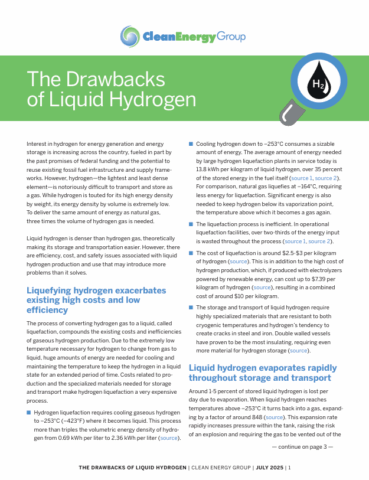The Drawbacks of Liquid Hydrogen
July 22, 2025
Eva Morgan | Clean Energy Group
Hydrogen—the lightest and least dense element—is notoriously difficult to transport and store as a gas. While hydrogen is touted for its high energy density by weight, its energy density by volume is extremely low. Converting hydrogen gas to a liquid, called liquefaction, makes hydrogen denser and theoretically easier to store and transport by cooling it down to extreme temperatures. However, over two-thirds of the energy input is wasted throughout the process, and large amounts of hydrogen are lost through evaporation. Moreover, expensive specialized materials are needed for storage and transportation.
This fact sheet covers the inefficiencies of hydrogen liquefaction, on top of the existing inefficiencies of hydrogen production. It details the high costs, high energy consumption, losses due to evaporation, safety concerns, storage and transportation issues, and global warming impacts of hydrogen liquefaction. These issues outweigh any potential benefits of hydrogen in the vast majority of use cases.





